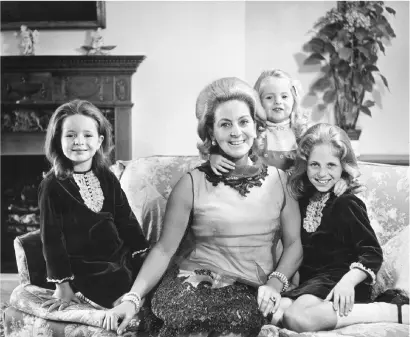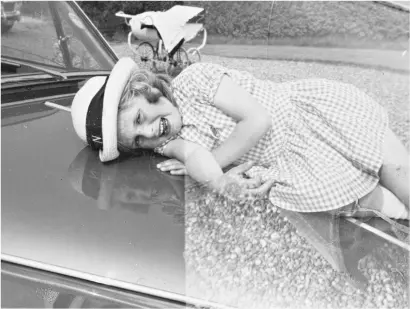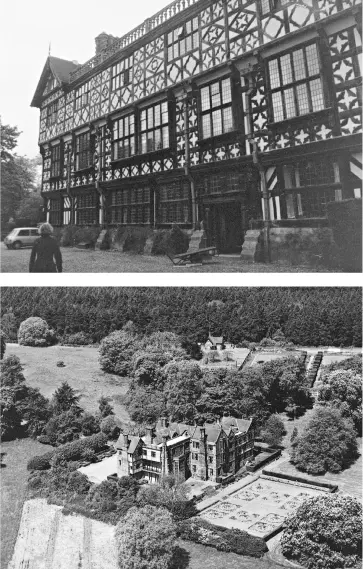After Vera’s funeral, Evelyn’s sister Rosie suggested that their mother’s ashes should be buried at the family church at Doddington. Evelyn flew into a rage and refused Rosie’s request. He told his sister, ‘If our mother had not divorced our father, none of the murder trial mess would have happened.’ The scars and shame of Kenya ran very deep for Evelyn.
* * *
Isabella was six years old when Lavinia arrived, and was attending Nuthurst school, the local private primary school in Nantwich, a few miles from Doddington. The school, which has since closed down, was a red-brick Georgian house with a white portico doorway in Hospital Street. Isabella enjoyed it and was popular with the other children and the teachers.
Her friends remember Isabella for ‘her mop of blonde hair’, and described Issie enjoying doing the washing-up at a schoolfriend’s party with her sister Julia.
Midway through Issie’s career at Nuthurst, a new teacher started. Arriving for her first day, Isabella, seeing that she looked a bit lost, greeted her with the words, ‘You must be new here. Let me show you around.’ It was typical of Isabella’s kindness and thoughtfulness to people, the teacher said.

Left to right: Lavinia, Helen, Julia and Isabella, at their home in Cadogan Square, London.

Young Isabella in her Nuthurst school uniform.
Isabella was, she added, ‘A little ray of sunshine.’
To occupy her children outside of term time, Helen, who had studied medieval history at school, encouraged them to look to their medieval roots. In addition to playing fantasy games in the tower, where she would make other children worship a plaque of a ‘goddess’, Isabella was often taken to nearby Audlem church, where she would make brass rubbings of her knightly ancestors’ tombs.
Once they went on a trip to the former family house, Broughton Hall. This single visit left a lasting impression on the young Isabella. For the rest of her life, she remained intrigued by the place, a sturdy black-and-white timbered building constructed in the 1450s. During the English Civil War in the 1640s, a young Broughton boy declared to the entering enemy Parliamentarian soldiers, ‘I am for the King!’ He was shot instantly, his blood flowing down the ornately carved staircase as he lay dying. As Isabella was absorbing all this history, her mother told her, ‘Well, Isabella, it is not yours any more,’ and took her home to the former gardener’s cottage.

Two views of Broughton Hall.
In the inexplicable way of such incidents, this cruel jibe about the lost Broughton fortune became a focal point for Isabella’s hatred of her mother. And in her escalating battles with her mother Isabella was to hone in on her mother’s weak spot: her bourgeois background.
Конец ознакомительного фрагмента.
Текст предоставлен ООО «ЛитРес».
Прочитайте эту книгу целиком, купив полную легальную версию на ЛитРес.
Безопасно оплатить книгу можно банковской картой Visa, MasterCard, Maestro, со счета мобильного телефона, с платежного терминала, в салоне МТС или Связной, через PayPal, WebMoney, Яндекс.Деньги, QIWI Кошелек, бонусными картами или другим удобным Вам способом.















